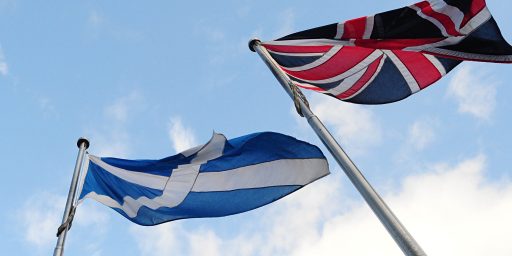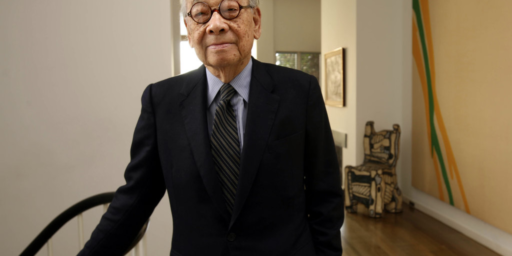George Washington Named Britain’s Greatest Military Foe
American revolutionary leader George Washington has been voted the greatest enemy commander to face Britain, lauded for his spirit of endurance against the odds and the enormous impact of his victory.
Apparently, that whole losing the colonies thing still stings just a little bit:
American revolutionary leader George Washington has been voted the greatest enemy commander to face Britain, lauded for his spirit of endurance against the odds and the enormous impact of his victory.
In a contest organised by the National Army Museum, Washington triumphed over Irish independence hero Michael Collins, France’s Napoleon Bonaparte, German Field Marshal Erwin Rommel and Mustafa Kemal Ataturk, the founder of modern Turkey.
Making the case for Washington, historian Stephen Brumwell said the American War of Independence (1775-83) was “the worst defeat for the British Empire ever.”
“His personal leadership was crucial,” he said.
Washington was a courageous and inspirational battlefield commander who led from the front but also had the skills to deal with his political counterparts in Congress and with his French allies, Brumwell said. Above all, he never gave up even when the war was going against him.
“His army was always under strength, hungry, badly supplied. He shared the dangers of his men. Anyone other than Washington would have given up the fight. He came to personify the cause, and the scale of his victory was immense.”
Almost 8,000 people voted in an online poll which produced a shortlist of five men, whose merits were debated by guest speakers at a weekend event at the museum before a final ballot of attendees.
The main criterion was that each commander must have led an army against British forces in battle – which ruled out foes such as Adolf Hitler – and that they must fall within the National Army Museum’s time frame of the 17th century onwards.
Interestingly enough, those limitations also mean that the last person to ever lead a successful cross channel invasion of the British Isles was left off the list.






If you read the article, there didn’t seem to be any sense of bitterness or animosity toward Washington.
@Stormy Dragon:
About that revolution. Folks often quote Churchill’s great lines “We shall fight them on the beaches…” The lines that conclude and end the speech are, for me, equally moving:
As it, in the end, did.
I have a hard time believing Washington, the man who won four battles and used an ocean to outlast the British, should be considered a greater military foe than Napoleon.
@Tillman: Napoleon had a real army and a real country supporting that very real army.. Might bit of difference in those situations..
@matt: Oh and a real navy too cannot forget that..
When Lincoln was a congressman, he went to England for a tour. The outhouse of his hosts had a portrait of George Washington behind the door. When Lincoln came back, his hosts snickered and asked what he thought about the portrait. Lincoln thought a second, then said: ‘There’s nothing that will make an Englishman loosen his bowels faster then the sight of General Washington.’ His hosts didn’t find it as funny as Lincoln did.
I’ve read that story too. Wonder if there’s truth in it.
Wrong William.
@PogueMahone: hyper link didn’t work.
Here’s another try.
Of course he’s their greatest military foe. No one else ever imposed so significant a defeat on them.
I’ve always found it fascinating to read contemporary English sources talking about Washington. There was a great deal of admiration for him, personally. George III, of course, said that if he gave up power he would be the greatest man of the 18th century, and it wasn’t long before he became widely regarded as a symbol of heroic patriotism. Let’s not forget, that there was strong support for the American cause among many people in England, so hostility toward Americans in general and Washington in particular was never universal there.
Wouldn’t William I be regarded as English by most of the English?